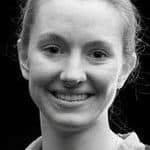The WHO Collaborating Centre (CC) on Investment for Health and Well-being developes and applies intelligence on how to invest to improve health and wellbeing, and reduce inequalities. With Public Health Wales, they have established the first Welsh Health Equity Status Report initiative (WHESRi). Here they describe their first report, ‘Placing health equity at the heart of the COVID-19 sustainable response and recovery: Building prosperous lives for all in Wales’
by Dr Mariana Dyakova, Anna Stielke, and Abigail Instone on behalf of the WHESRi team
The WHO Collaborating Centre on Investment for Health and Well-being
The World Health Organization (WHO) Collaborating Centre (CC) on Investment for Health and Well-being supports the WHO to drive investment in people’s health, well-being, and equity – enabling sustainable development and promoting prosperity for current and future generations. It builds on Public Health Wales’ long history of collaboration with the WHO, and its participation in European and global networks, such as EuroHealthNet and IANPHI.
The WHO CC develops, collects, applies, and shares learning, intelligence, innovative approaches, and tools on how best to invest in improving population well-being, reducing health inequities, and building stronger and more resilient communities and sustainable economies in Wales, Europe, and worldwide.
Public Health Wales is the national public health institute for Wales, aiming to achieve a healthier, happier, and fairer Wales. It provides professional, independent advice and services to protect, improve, and promote health and well-being and to reduce health inequalities.
The Welsh Health Equity Status Report initiative (WHESRi)
We need urgent action to address growing health, social, economic, and environmental challenges. They threaten the well-being of present and future generations. The ongoing COVID-19 pandemic has made the need for action more critical then ever. We know that the pandemic has devastating health, well-being, and socioeconomic consequences. We also know that those consequences are felt unequally across societies and countries.
Wales is the first country to be recognised as a global influencer and live innovation site for health equity. This recognition came about through a Memorandum of Understanding between the WHO Regional Office for Europe and the Welsh Government. As part of our work in this area, Public Health Wales has established the first Welsh Health Equity Status Report initiative (WHESRi). WHESRi replicates the a milestone WHO Health Equity Status Report initiative (HESRi).
The first WHESRi report was published in March 2021. Titled ‘Placing health equity at the heart of the COVID-19 sustainable response and recovery: Building prosperous lives for all in Wales’, the report called for concerted effort and investment towards ensuring that everyone has an equal opportunity to achieve the highest possible level of health.
Methodology
The report draws a comprehensive multidimensional picture of the COVID-19 impact and response in Wales. It maps these impacts and responses along an innovative WHO HESRi framework of Five Essential Conditions needed to create and sustain a healthy life for all. These conditions are: good quality and accessible health services; income security and social protection; decent living conditions; social and human capital and decent work and employment conditions. The report uses multiple sources and methods to assess, analyse, and synthesise national and international evidence, public experience, administrative data, health intelligence, economics modelling, policy responses and mitigation measures, and specific case studies across sectors (Figure 1).
Figure 1: Methodological overview
Key findings
The report highlights that the COVID-19 pandemic has triggered a public health and socio-economic crisis. It has exacerbated underlying inequities, and exposed new vulnerabilities. It has revealed the fragility of systems and capacities which are related to chronic under-resourcing of public health, disease prevention and health promotion.
Key population groups with multiple vulnerabilities, compounded or exposed by COVID-19, include:
- Children and young people
- Minority ethnic groups, especially Black and Asian
- People living in (or at risk of) deprivation and poverty
- People in insecure/low income/informal/low-qualification employment, especially women
- Marginalised and socially excluded, such as homeless persons
However, there is an opportunity for a transformative, synergetic recovery. This recovery could accelerate innovation and bridge the gaps in health, education, housing, income, employment prospects and social safety nets. It could advance green solutions, and ensure the well-being of current and future generations.
There is also an opportunity to prevent future epidemics and crises. We can 
behaviours, and strengthen individual and community resilience to infections and adversities. This requires urgent coherent action across all sectors and key stakeholders.
Dr Mariana Dyakova, who is the International Health Lead and WHO CC Deputy Director explains: “The COVID-19 pandemic has highlighted once again the profound interdependence between individual and population health, community resilience, societal cohesion, and the economy. Public Health has become a global focus, strengthening the case for investing in people’s well-being – preventing disease early, protecting and promoting health, enhancing resilience and equity, supporting the most vulnerable and empowering our communities. We need to transform our way of thinking, to change the way we are doing things and to create a more sustainable, healthier, more equal, inclusive and prosperous Wales for our current and future generations.”
Further reading and resources
- Read the Welsh Health Equity Status Report – WHESRi report online
- Information on the national public health agency of Wales, Public Health Wales
- For further information on the WHO CC on Investment for Health and Well-being
- Information about the WHO Office for Investment for Health and Development (Venice, Italy)
- Further information about the WHO Health Equity Status Report initiative (HESRi) can be found here:
Note: The information and data included in the report are not comprehensive and do not reflect the most up to date evidence base. Evidence presented in the report provides a snapshot related to the COVID-19 statistics and impacts at the time of publication in March 2021.




